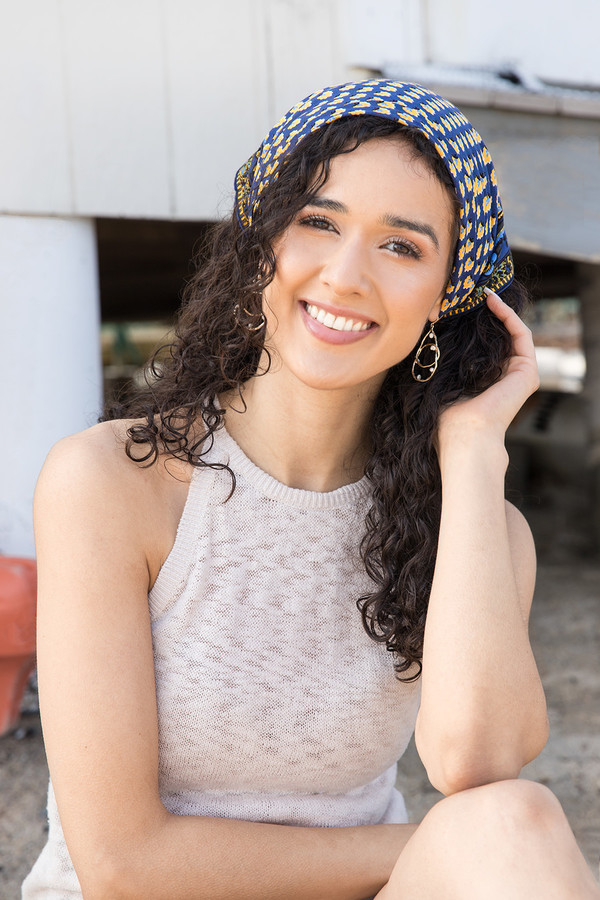The bandana is the Swiss Army blade of the attire world. Not exclusively can these little bits of designed material be utilized as a flexible style extra, however they likewise have incalculable utilitarian uses, such as cleaning your nose, keeping your head cool on a warm summer day, or even unrehearsed medical aid on the off chance that you wore some unacceptable sort in some unacceptable area. We’ve already covered a comprehensive history of the bandana, but if you’ve yet to take foot into the paisley-printed realm of the bandana, we’ve built up this buyer’s handbook to give you an educational background on the topic and send you in the right direction.
What is a Bandana?
A bandana is a generally little square piece of fabric, ordinarily adorned with an example or print. Bandanas are typically 20 by 20 inches in size and are made from a light woven cotton bandana that has been carefully cut around the borders.
Otherwise called a bandanna, bandanas are utilised universally for brightening, defensive, and utilitarian purposes, regularly worn around the head or neck.
Examples and Printing
Bandanas are typically one square tone with a differentiating printed design, frequently of the paisley variety design that started in old Persia (present-day Iran) and is generally composed of exquisite tears and other brightening shapes. While paisley is the most usually utilized theme, bandanas regularly include different examples or printed pictures.
Examples and pictures are applied to bandanas through the accompanying strategies:
Release printing This technique includes treating colored pieces of fabric with a shading annihilating specialist (like chlorine), which fades an example onto the material.
Screen printing An interaction in which a cross section stencil extended over a huge screen is utilized to move ink onto the texture.
Oppose coloring The fabric is treated with an answer prior to being plunged into the color, and that arrangement keeps the treated regions from responding with the color, framing a differentiating example or succession.
Really focusing on Bandanas
The consideration system for a bandana is abstract to the texture it is produced using, and how you need it to look. Most regular cotton bandanas will be colorfast, which means they can be thrown in the clothes washer when required, and you wont need to stress over the shading running (and you’ll need to allow every day maltreatment to wear out the color assuming you need some epic bandana blurs). Different bandanas might be colored in an unexpected way, or produced using an elective texture like silk, which means you’ll need to wash and really focus on them in a similar manner.
Hav-A-Hank Genuine Bandana
Hav-A-Hanks has been the universe’s biggest provider of bandanas starting around 1946, and their exemplary bandanas are made in the USA from firmly woven 100% cotton. Seen here in strong naval force and red colorways, Hav-A-Hank bandanas include conventional differentiating paisley print and neatly sewed edges to forestall fraying. A genuine American work of art.
Iron Heart
Iron Heart applied their own unique ringer paisley example to this 100% cotton bandana utilizing release printing. Each piece measures 19.5 x 19.5 and highlights Iron Heart marking on the corners.
The Hill-Side
The Hill-Side provides a selection of unique bandanas that depart from the traditional paisley motifs and 100 percent cotton composition. Notwithstanding a wide cluster of prints and patterns including palm leaves and a wacky burger-themed printThe Hill-Side likewise created plain bandanas in a material/cotton mix that arrive in a determination of downplayed colors.
Kapital
Kapital is notable for its assorted scope of bandanas, and the Japanese marks current assortment highlights both indigo-colored and colorfast selvedge bandanas, all total with fragile hand-printed examples and plans. Furthermore, just to keep things truly fascinating, they likewise made a case of cotton bandanas adorned with hallucinogenic Peter Max-style prints, the notorious pop craftsman liable for The Beatles Yellow Submarine collection fine art.
Do-It-Yourself NO Sew Face Mask
Bandanas are famous right now to make no-sew facial coverings. You can crease your bandana corner to corner in a triangle and afterward tie it at the rear of your head.
Then again, crease the edges in to meet one another or cover somewhat. String through hair elastics on the finishes and overlay the texture over in towards the center. You can change the length and width of your collapsing to suit your face size.

